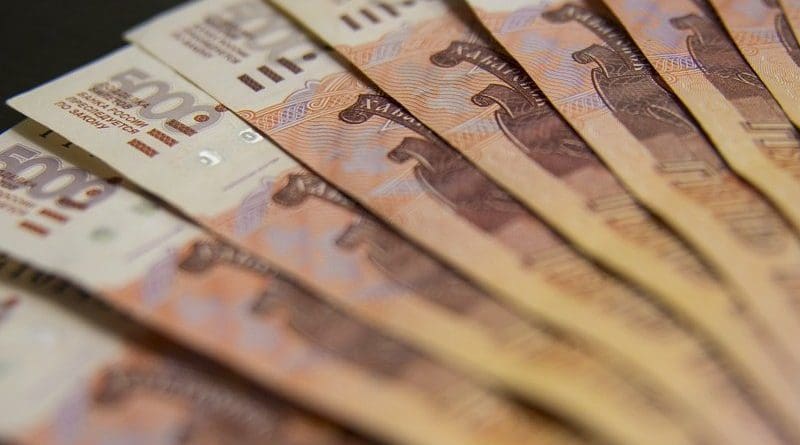New Upsurge Of Pandemic In Europe Driving Down Oil Prices And Ruble Exchange Rate – OpEd
By Paul Goble
The complex ways in which the pandemic interacts with other social phenomena were very much on view today when Russian analysts pointed out that declining future prices for oil were sending the ruble exchange rate down and that both of these developments reflected the upsurge in the pandemic in western Europe.
Because European countries are having to move back toward lockdowns as a result of problems with the AstraZeneca vaccine and their immunization program more generally, Russia is suffering with the amount of money it earns from the sale of oil and the ruble exchange rate both suffering (iarex.ru/articles/80183.html).
These connections reflect the fact that market analysts have concluded that Europe may not come back from the pandemic as rapidly as they had expected and thus they are projecting that demand for oil in the coming summer months will be significantly lower than they had expected as recently as a few weeks ago.
The pandemic continues to ebb and flow in Russia and that country too is facing two challenges in its vaccine program. Moscow officials reported registering 9299 new cases of infection and 371 new deaths from the coronavirus over the past 24 hours (t.me/COVID2019_official/2638 and regnum.ru/news/society/3217850.html).
But Russian officials also reported that an increasing number of regions are running out of the vaccine, forcing them to slow down immunizations, stop the program altogether, or make people wait in long lines in the hopes of being vaccinated (iarex.ru/articles/80184.html and paperpaper.ru/papernews/2021/3/22/v-lenoblasti-ostalos-menee-odnoj-tys/).
At the same time, the Gamaley Center which developed the Sputnik-5 vaccine announced that new research had ofund that “a minimum of 20 percent” of those who have been infected with the coronavirus and then recovered do not have the antibodies needed to make them immune (regnum.ru/news/3220943.html).
That means that Russia, and other countries as well, will have to vaccinate significantly more people than they had planned or are projected to in order for their populations to reach herd immunity levels.
The Moscow Patriarchate threw its weight behind the vaccination program saying that all who are not indifferent to the health and lives of those around them should get the vaccine, the clearest statement it has issued since the Sputnik-5 vaccine was developed, something that will spark controversy with anti-vaxxers in the church (echo.msk.ru/news/2808392-echo.html).
Today, representatives of Turkic and Persian nations in the Russian Federation celebrated Navruz, the holiday that marks the start of spring for them. This year, all reportedly redesigned their celebrations to stay within the coronavirus restrictions of the areas in which they live (ekhokavkaza.com/a/31162389.html).

